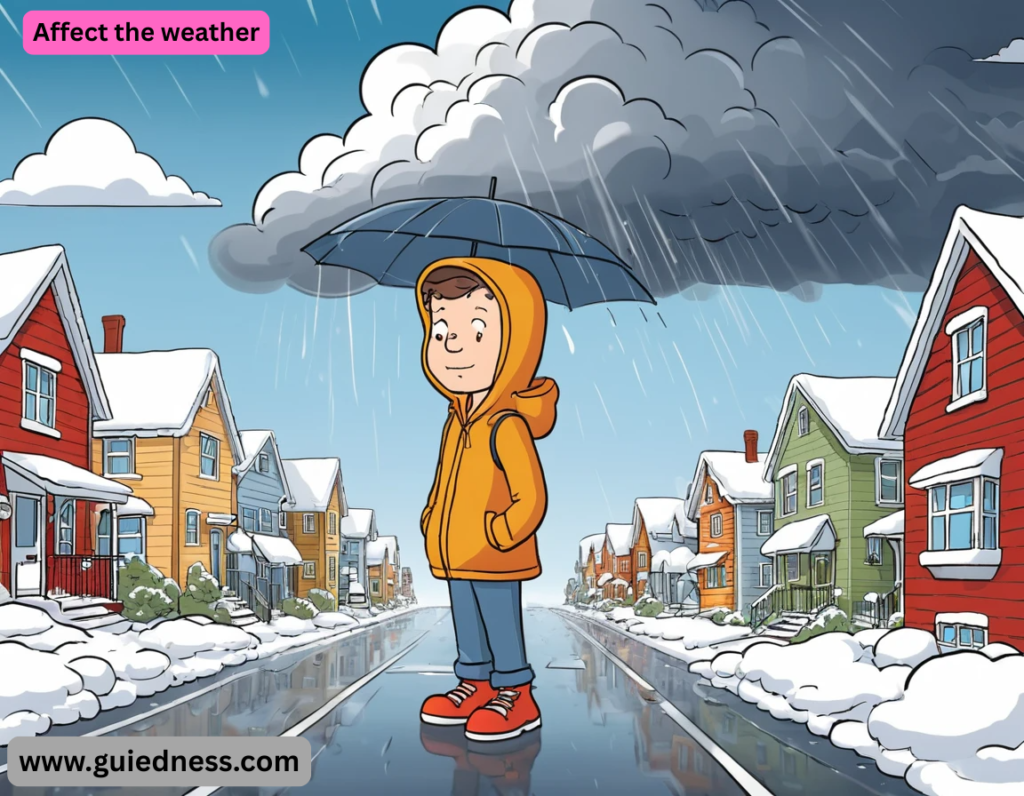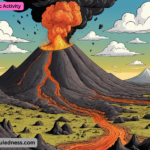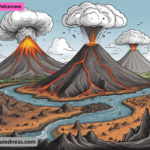Affect the weather The weather is influenced by a variety of natural and human factors. Here are some key ways it can be affected:
Natural Factors:
- Solar Radiation – The sun’s energy drives weather patterns, affecting temperature, wind, and precipitation.
- Atmospheric Pressure – High and low-pressure systems influence cloud formation, wind, and storms.
- Topography – Mountains, valleys, and bodies of water alter wind and rainfall patterns.
- Volcanic Eruptions – Ash and sulfur dioxide can block sunlight, causing temporary cooling.
Human Influences (Anthropogenic Factors):
- Greenhouse Gas Emissions – CO₂ and methane trap heat, leading to global warming and extreme weather.
- Deforestation – Reduces moisture in the air, altering rainfall patterns.
- Urban Heat Islands – Cities absorb and retain heat, increasing local temperatures.
- Aerosols & Pollution – Particles from industry and vehicles can affect cloud formation and rainfall.
- Geoengineering – Experimental techniques like cloud seeding attempt to modify weather.
Natural Weather Mechanisms
A. Atmospheric Dynamics
- Fronts: Collisions of warm & cold air masses cause storms (e.g., thunderstorms, blizzards).
- Humidity & Condensation: Water vapor fuels clouds and precipitation; dew point determines fog or rain.
Ocean-Atmosphere Interactions
- El Niño / La Niña: Shifts in Pacific Ocean temperatures alter global weather (e.g., El Niño → wetter California, drier Australia).
- Gulf Stream: A warm Atlantic current keeps Europe milder than similar latitudes.
Extreme Weather Triggers
- Hurricanes: Need warm ocean water (26.5°C+/80°F+) + low wind shear.
- Tornadoes: Form from supercell thunderstorms with rotating updrafts.
- Droughts: Caused by prolonged high-pressure systems blocking rain.
Human Impacts on Weather
Climate Change Effects
- Intensified Storms: Warmer oceans = stronger hurricanes & heavier rainfall.
- Heatwaves & Wildfires: Rising temps increase drought risk (e.g., 2023 Canada fires).
- Shifting Jet Streams: Arctic warming may cause prolonged weather patterns (e.g., “stuck” heat domes).
Direct Weather Modification
- Cloud Seeding: Spraying silver iodide/salt into clouds to induce rain (used in UAE, China).
- Hurricane Mitigation: Old experiments tried cooling oceans or disrupting storms (mostly failed).
Could We Control the Weather in the Future?
Theoretical (or controversial) ideas:
- Space Mirrors: Blocking sunlight to cool Earth (geoengineering).
- Carbon Capture: Reducing CO₂ to reverse climate trends.
- AI Weather Prediction: Ultra-precise models might allow targeted intervention.
- Biggest Challenge: Weather is a chaotic system—small changes can have unpredictable outcomes.
The Physics of Weather: Why It’s So Complex
- Weather is a chaotic system (Lorenz’s “Butterfly Effect”), meaning tiny changes in initial conditions (humidity, pressure, temperature) can drastically alter outcomes.
- Key Equations Governing Weather:
- Thermodynamic Laws: Explain heat exchange driving storms.
- Why We Can’t Perfectly Predict Weather Beyond ~2 Weeks:
Computational limits (even supercomputers can’t model every molecule). - Incomplete data (e.g., ocean temps under hurricanes).
Sci-Fi vs. Reality: Future Weather Control
Plausible Near-Term Tech
- Directed Energy Lasers: To trigger lightning or dissipate fog (military research exists).
- Bioengineered Clouds: Algae or bacteria that modify cloud reflectivity (still theoretical).
- AI-Driven Geoengineering: Algorithms optimizing aerosol injections to cool Earth (risky!).
Far-Fetched (But Hypothetically Possible)
- Atmospheric Satellites: Giant mirrors or shades in space to block sunlight.
- Artificial Low-Pressure Systems: Giant fans or heat pumps to “steer” storms.
- Biggest Risk: Unintended consequences (e.g., causing droughts elsewhere by “stealing” rain).
Ethical & Political Nightmares
- Weather Warfare: The UN banned “environmental modification” in war (1977 ENMOD treaty), but the line is blurry (e.g., cloud seeding used agriculturally).
- Climate Colonialism: Rich countries geoengineering could devastate poor nations (e.g., shifting monsoons).
- Who Decides? No global framework for who controls the thermostat.
Deep-Cut Questions to Ponder:
- If we could stop hurricanes, should we? (They redistribute heat and replenish aquifers.)
- Would “owning” weather tech lead to corporate-controlled climates?
- Could we ever terraform Earth like Mars—or is weather too interconnected?
Quantum Meteorology: The Next Frontier
Quantum Computing & Weather Prediction
- Affect the weather Current Supercomputers (like NOAA’s GFS) struggle with 10-day forecasts due to chaos theory.
- Quantum Algorithms (e.g., Harrow-Hassidim-Lloyd) could model all possible atmospheric states simultaneously, extending reliable forecasts to 30+ days.
- Google Quantum AI is already testing fluid dynamics simulations.
. Quantum Entanglement for Weather Sensing
- Hypothetical quantum radar could measure exact humidity, pressure, and temperature in real-time across the globe.
- Entangled photon sensors in satellites might track precursor storm conditions before they form.
The “Quantum Butterfly Effect”
- If we manipulate weather at the quantum level, could we erase atmospheric chaos?
- Or would it create new, unpredictable macro-effects?
Directed Energy Weather Control
A. Laser-Guided Lightning
- Laser Plasma Channels can steer lightning strikes (tested by University of Arizona & DARPA).
- Applications:
- Prevent wildfires from lightning.
- Harvest energy from storms.
Microwave Atmospheric Heating
- HAARP 2.0 (2024+) uses phased array microwaves to:
- Disrupt hurricanes by heating the eyewall.
- Create artificial ionospheric mirrors for radio comms (and maybe weather tweaks).
Fog Dissolution with Particle Beams
- CERN-style accelerators could fire charged particles to evaporate fog at airports.
Artificial Intelligence as a Weather God
A. Neural Weather Networks
- Google DeepMind’s GraphCast already beats traditional models.
- Next-gen AI climate models will run real-time weather manipulation simulations before execution.
Autonomous Weather Drones
- Affect the weather AI-piloted fleets could:
- Seed clouds on-demand.
- Deploy vortex generators to weaken tornadoes.
- Release heat-absorbing nanogels to cool cities.
The Weather Singularity
- A future where AI controls climate—balancing CO₂, storms, and droughts like a planetary thermostat.
- Risks: AI could “optimize” weather for GDP, not ecosystems.
Geoengineering: The Nuclear Option
Stratospheric Aerosol Injection (SAI)
- Harvard’s SCoPEx plans to spray 10-20 megatons of sulfates/year to reflect sunlight.
Effects:
Could cool Earth by 1-2°C.
- But may bleach skies white and disrupt monsoons.
Ocean Alkalinity Enhancement
- Dumping olivine sand into oceans to absorb CO₂.
- Side effect: Could alter marine ecosystems unpredictably.
Arctic Ice Restoration
- Underwater drones pumping cold water to refreeze polar caps.
- Mylar mirrors floating to reflect sunlight.
The Geopolitics of Weather Domination
- A. The New Cold War: Climate Control Arms Race
- China’s “Sky River” cloud-seeding project aims to redirect rainfall.
- US “Rainmaker” programs exploring hurricane deflection.
- Russia’s “Sura” Ionospheric Heater—weather weapon or research?
B. Weather as a Weapon (Again)
- ENMOD Treaty loopholes: “Non-harmful” weather modification is legal.
- Scenarios:
- A corporation buys exclusive climate rights over farmland.
The “Climate Cartel” Problem
- Affect the weather If one nation controls the weather, do they tax the rest of the world for sunlight?
- The Far Future: Post-Human Climate Engineering
Dyson Swarm Climate Control
- Solar mirrors in space fine-tuning Earth’s temperature.
- Orbital sunshades blocking exact percentages of sunlight.
Nanobot Weather Networks
- Trillions of microscopic bots regulating humidity, pressure, and temperature in real-time.
Terraforming Earth Like Mars
- If we can reengineer entire atmospheres, why stop at weather?
…….Affect the weather………






